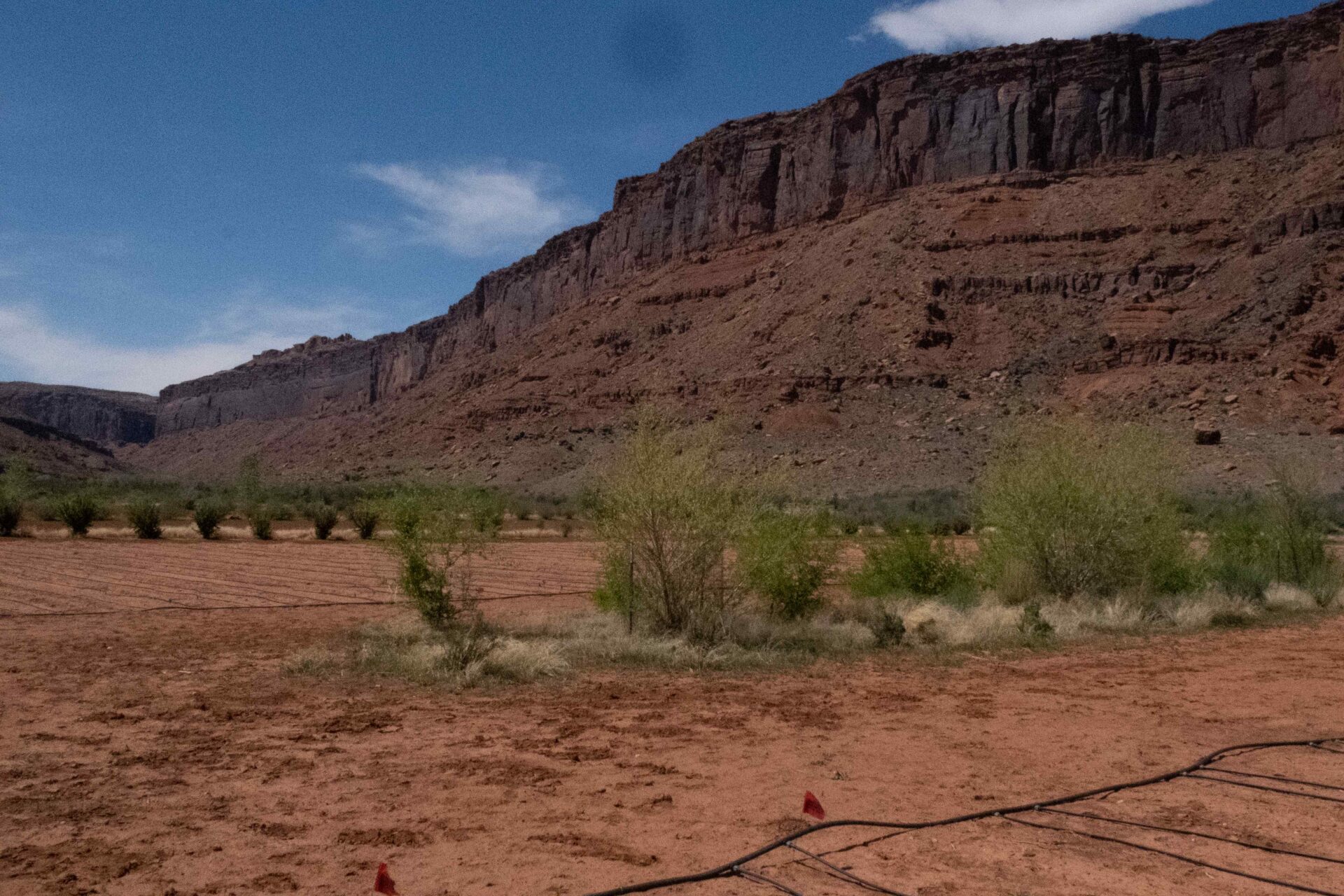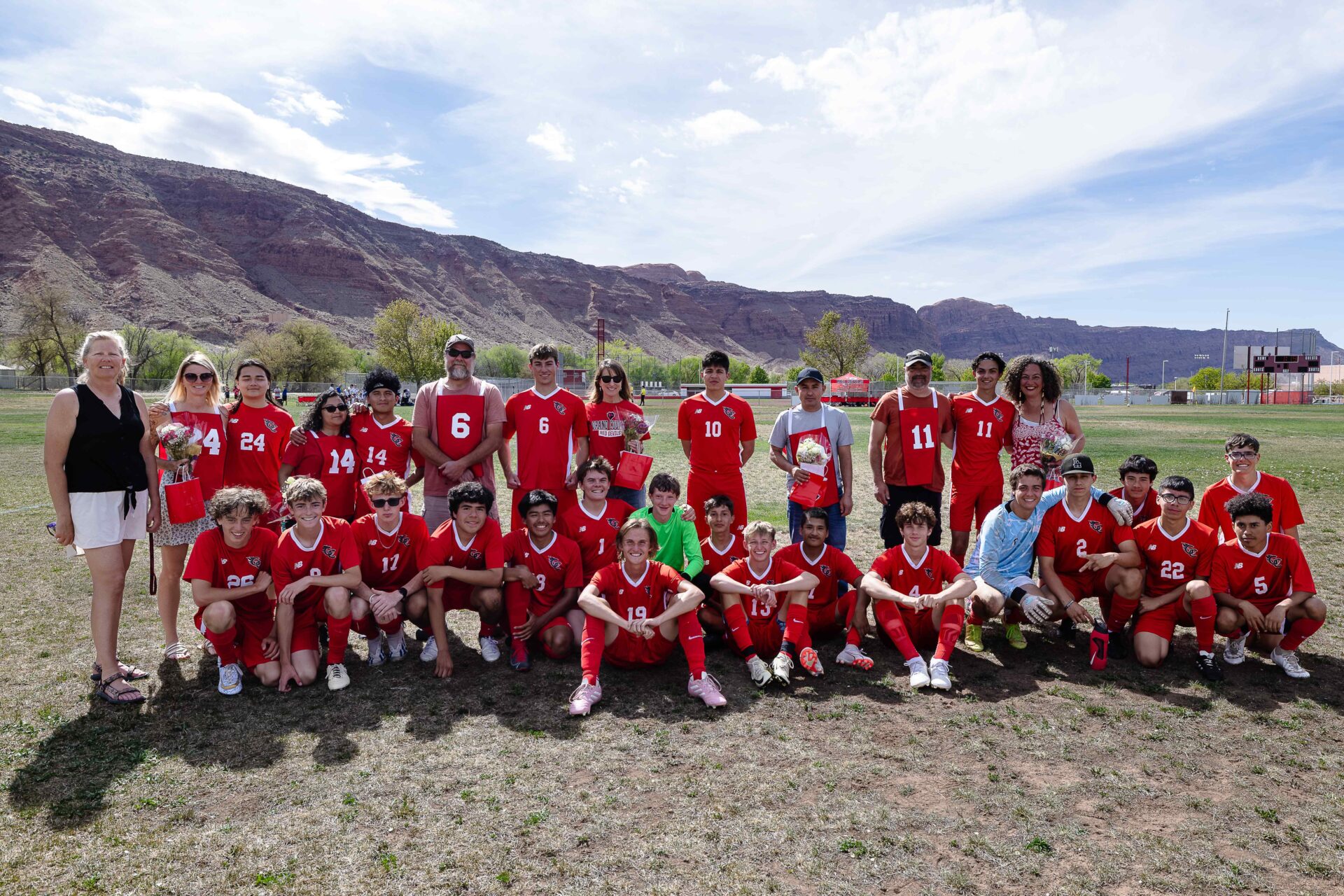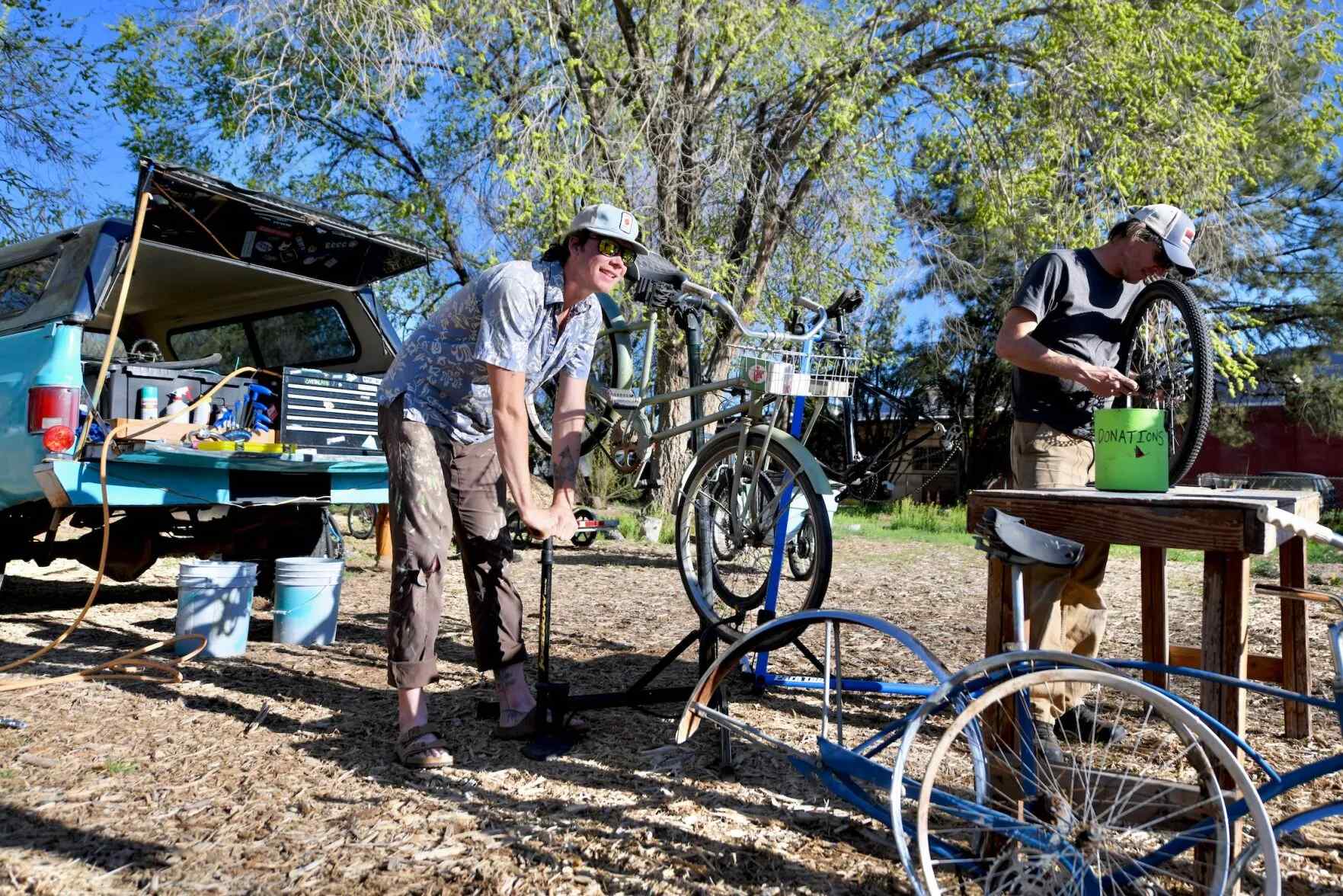Roadside stands selling Palisade peaches are a summer staple in Moab.
Utah’s eastern neighbor is known for its fruit production, and particularly for sweet, juicy peaches grown in Palisade, about two hours from Moab and just east of Grand Junction.
In the 1880s, settlers in the Grand Valley, where Palisade sits, irrigated the rich valley soil with water from the Colorado River, then called the Grand River, using canals. The valley’s cultivation came at the expense of the Ute tribe, who was living in the area until the United States government displaced them.
According to the Museum of Western Colorado, the valley’s unique conditions create the perfect environment for peaches: a down-slope wind from the north usually keeps frost from killing spring fruit, and the cliffs surrounding the valley absorb and then radiate warmth, further moderating spring temperatures.
The valley’s warm days and cool nights produce fruits that earn Palisade the title of Colorado’s Peach Capital, and the town celebrates that heritage at the annual Palisade Peach Festival in August.
Around the same time that orchards were being nurtured in Colorado’s Grand Valley, farmers in Moab and other small Grand County communities were growing apples, pears, cherries and peaches for export. The fruit industry was never a major economic driver in the county, but its legacy looms large in the county’s identity, which may be one reason Moabites are excited to scoop up regionally grown fruits during their peak season.
Ryley Meagher and Ben Gardner, set up under a shade tent next to the Moab Rock Shop, do a steady business selling peaches from the Haven Produce farm in Palisade, though it’s a sweltering Monday afternoon.
They’re friends with the farmers, and buy fruit in bulk to transport to Moab to resell. They stay in town for a few days at a time, then make the two-hour drive back to Palisade to stock up. This is their first year working a fruit stand, and they say it’s been a good gig so far. Gardner just graduated from high school, and hopes to use some of the money towards college tuition.
Peach season is from mid-July through mid-September. This year’s fruit crop is much better than last year’s, Gardner said—in the spring of 2020, late spring frosts killed the flowers of many fruit trees in Palisade, as in Moab.
Two and half pounds of peaches, which amounts to around eight fruits, costs $10. Ten pounds costs $35, and 20 pounds is $60. Also this season, Meagher and Gardner are considering bringing plums, pears, and Olathe sweet corn to their Moab produce stand.
Meagher and Gardner aren’t the only Palisade ambassadors in Moab. Other farms have been coming every season for years, and stands pop up on north Highway 191, 100 West, and other spots around town; or vendors sell their produce through Facebook or word of mouth. Some sellers invite online pre-orders. There’s more than one way to get a taste of Palisade peaches before the season ends.




